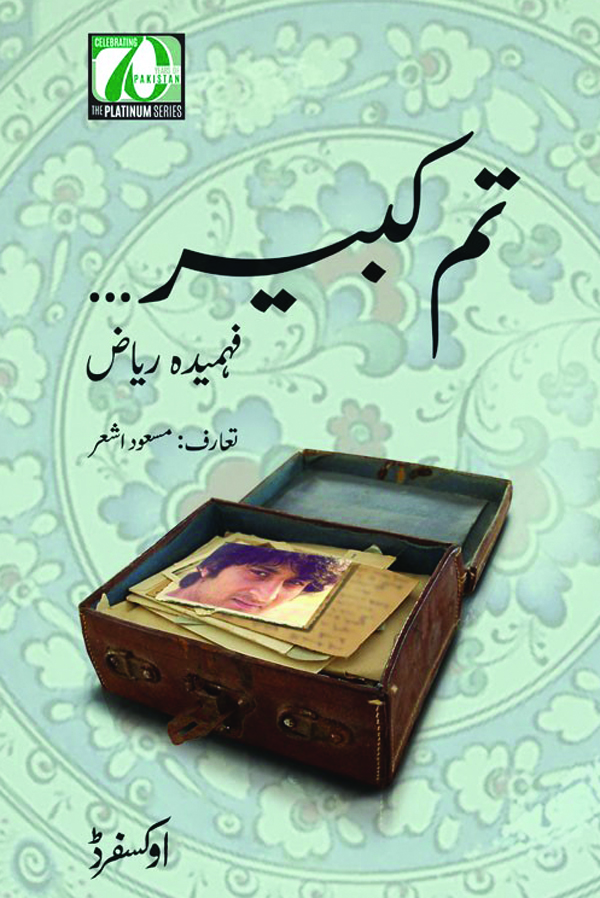Tum Kabir (2017) is the seventh col-lection of poems of Fatima Riaz—a celebrated Progressive Urdu writer of Pakistan who challenged both the traditional form and idioms that have dominated Urdu poetry since its inception. Describing the many facets of Fahmida Riaz in the introduction to Tum Kabir, the renowned writer Masood Ashar asks, ‘Does Fahmida Riaz need an introduction? Is it necessary to describe her as a renowned poet, an accomplished short story writer, a trustworthy and impeccable translator or a passionate human rights activist? Is it not enough to say that Fahmida Riaz is Fahmida Riaz? There is no one like her.’ Indeed she has no parallel in South Asian poetry. In Tum Kabir, Riaz’s rigour manages to hold together a heterogeneous, seemingly diverse mix of poems on the following themes/subjects: faithfully transcribed dreams and desires (‘Nayi Dictionary’ and ‘Naya Faisla: Tehrek-e-Niswa ke Liye’), memories of other poets (‘Josh Malihabadi’ and ‘Bhai Jaun Elia ke Liye’), reminiscences (‘Rehman Baba’), musings on family members (‘Tum Kabir’, ‘Ammi’ and ‘Suno Suleiman’), political figures (‘Salaam Benazir’, ‘Bhagat Sing ki Murat’ and ‘Aung San Suu Kyi Ke Naam’), destructive impact of materalism and capitalism (‘Cho Suaing Hui: Ek Mukalma’, ‘Kissa e Raymond Davis’ and ‘Muskurao Palwashe’) and socio-political meditations (‘Naya Bharat’, ‘Pokharaan Aur Chaaghi’, ‘Karachi’, ‘Aman ki Asha’, ‘Baghdad pe Pehli Bambari’ and ‘Saddam Hussein aur Ahmed Al’) among others.
October 2017, volume 41, No 10

